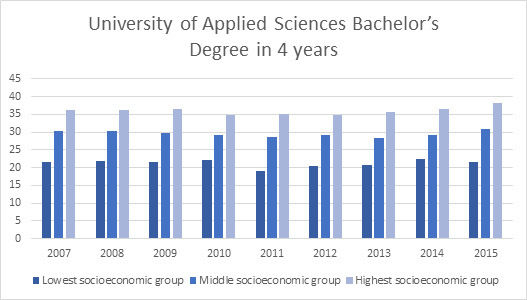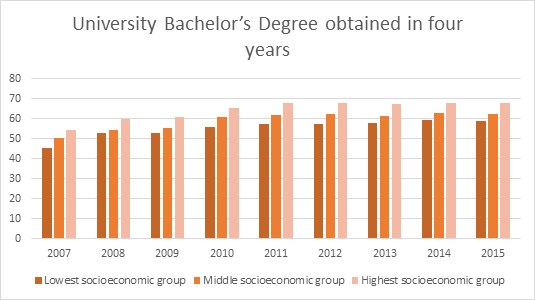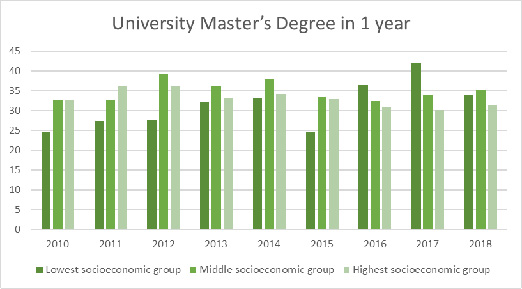In answer to the question of whether students study faster without a basic student grant, Statistics Netherlands says that no, they do not, or only very few do. Their parents’ financial situation has more of an impact than their own finances.
This is striking. The study progress of students from poorer families does not appear to be hindered by the loss of the basic student grant. It has not helped them either, however. Their study tempo has always lagged behind slightly, and this remains unchanged.
No trend changes have been apparent since the introduction of the loan system. Take the 2015 cohort of students embarking on their studies at universities of applied sciences. How many graduated in four years, in other words without any study delays? Just like in previous years this number was around 30 percent, with a considerable difference between students from wealthier and poorer backgrounds.
University Bachelor’s degrees demonstrate a similar pattern. After four years (i.e., with no more than a year’s delay) 68 percent of the richer students obtained their degrees, compared to 59 percent of students from the lowest socioeconomic group. This means that there was no discernible difference between the first cohort under the new loan system and their predecessors.
Finally, CBS also reviewed which students obtained their Master’s degrees in one academic year. Some differences could be observed there. Where students from less wealthy backgrounds often tended to complete their studies at a slightly slower pace, the cohorts of 2016 and 2017 sprinted past the others. Could this be due to the shock of the new loan system? Possibly, but the effect seems to have worn off by 2018.





Discussion